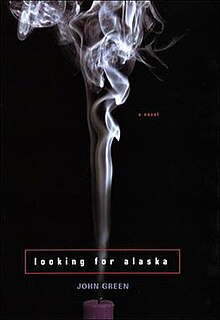I want to stress that I don't think there is anything wrong with this string of familiar characters who seem imbued with an extra dose of grabbing life by the gonads and making it sing. It's a tried and true formula for stories of self-discovery. If you don't know what I mean by "manic pixie dream girl," I encourage a trip to YouTube for that explanation. But in short, it is basically something that emerged in recent years as a character type that is injected into story lines to teach the male protagonist about life, freedom, love and all things that make one feel alive and connected. Think Natalie Portman's character in my beloved Garden State; she introduces the male protagonist to The Shins, thrusts him into unfamiliar situations to force the emergence of self identity in an effort to cope and adapt, confesses the darkness buried in her being of light, makes him feel unique, makes him question life, and gets him to do something completely freeing. That is essentially the formula for the creation of a "manic pixie dream girl."
Friday, August 14, 2015
Book Review: "Looking for Alaska" by John Green
After reading John Green's Looking for Alaska, I now understand a commonly cited criticism of his writing: the use of the "manic pixie dream girl" trope. Perhaps if I had not just read Green's Paper Towns I wouldn't feel so crotchety, but that just isn't the case in my experience of Looking for Alaska. That's not to say I didn't find the story entertaining, if there is one thing John Green does well, it's construct a proper story arc; however, these characters felt too familiar. Alaska felt like Margot Roth Spielgman in Paper Towns, and if I'm going to be honest I want to flip the gender roles and say that Alaska and Margot are also very similar to Augustus Waters from The Fault in Our Stars.
Wednesday, August 12, 2015
Book Review: "The Martian" by Andy Weir
It's not often a book comes along with a character like Mark Watney. The main protagonist of Andy Weir's The Martian is an astronaut with a background in botany and mechanical engineering that is unfortunately presumed dead and stranded by his crew on Mars. If you read that sentence and came away with the taste of science on your tongue, you aren't far off the mark. This is definitely a science heavy story, but it's the character of Mark Watney that makes this journey worth reading.
Mark Watney is a perpetual smart ass. His humor never fails to pierce the severity of his life or death situation and lighten the tone of the story. After being left behind by his crew during a bad storm on Mars, Mark has to figure out how to create water, grow food, and somehow communicate with NASA. The problems he faces are unrelenting, and as a reader I agreed with Mark that it seemed like the inhospitable planet was trying to kill him. Mars is definitely the antagonist of the story just due to its very nature. It becomes coldly clear that Mars is no friend to mankind, and this hits upon a reoccurring theme in the story that Earth is the hub of humanity and all of the things that make humanity worth saving is embodied by this lone man stranded on a planet far from home.
Subscribe to:
Posts (Atom)

